Updated November 20, 2023
Reading Time: 7 minutesChanging Behaviors & 2022 Predictions
2022 is a few days old. Many marketers are putting the finishing touches on this year’s marketing plans. Yet, if the last several years have taught us anything, marketers need to be flexible and nimble. To help you anticipate 2022’s marketing trends and changing buyer behaviors, we’ve summarized data from multiple research sources to help you plan, strategize, and thrive in the new year.
Digital Transformation Continues
For start-ups and other tech-embracing companies, digital transformation is not new (it started nearly 30 years ago). For those slower to adopt digitization, the pandemic has forced their hand. Research has shown digitalization across all sectors. It’s affecting B2C and B2B buyer behaviors. As such, marketers are spending more on digital channels to regain market share or seek emergency opportunities.
Digital Marketing Macro View
Deloitte and Duke University’s CMO Survey captures data related across all industry sectors. It’s no surprise that digital marketing spends continue to grow, representing a larger portion of overall budgets. From a macro view, here are some of the most notable marketing statistics:
- Digital marketing reached 58% of marketing budgets, a 15.8% growth over last year.
- 73% of marketing leaders have been tasked to lead their companies’ digital marketing transformation. They expect to see a larger share of responsibility in strategic marketing activities.
- Digital marketing investments focuses on driving business outcomes (increased revenue, sales, volume, profit) rather than customer experience
- There’s continued pressure to prove the impact of marketing — demonstrate returns and value — especially to the C-Suite.
- Marketers were optimistic about the U.S. economic growth as of August 2021. However, this optimism may have been dampened with Omicron sweeping Europe and its march across the U.S. during the winter holiday season
- Only 11.8% of companies are using artificial intelligence (AI) and machine learning. This is expected to triple in growth to 37.7% over the next three years.
Digital Marketing Transformation & Investment Trends
What are marketers investing in? Everything, from website optimization to apps.
- Website optimization. Optimization could be as simple as keeping the content current. For others, it may mean a complete site overhaul to improve mobile responsiveness, user experience, and site speed to remain competitive.
- Digital media and search. Essentially this is SEO and paid search.
- Data analytics. Marketers are required to crunch the numbers and provide insights. Consolidating key metrics into dashboards are now mandatory to be effective.
- Direct digital marketing. Email isn’t dead. On the contrary, it’s the most cost-effective medium when done right.
- MarTech stack. Investing in new technology and integrating into existing platforms is now the norm. Astute marketers know that siloed solutions are a thing of the past.
- Experimentation & testing. As Nelson Mandela said “I never lose. I win or I learn.” A/B testing, pilot programs, and other experimentation should become an integral part of digital marketing.
According to data collected from 12 months prior, there is a 5.2% rebound in marketing spending from 2020 pandemic levels. In the next 12 months, it’s projected to grow 13.4%. With growth comes increased responsibility. Accurate and real-time data dashboards are needed to make sure you’re spending on the right channels to get results.
What parts of a marketing budget will see growth? It appears that new product introductions and brand building top the list.
What’s Most Important to Marketers
Survey respondents were asked to rank which metrics they used to evaluate the impact of their marketing actions. Sales and customer engagement topped their list. Only 13.9% cited ROI which further supports the need for better data analytics and their use for marketing decision making.
What’s Around the Corner: 2022 Predictions
- Adhering to Google’s EAT (Expertise, Authoritativeness, Trustworthiness). Creating high-quality content should be at the top of a marketers 2022 to-do list. This content needs to be both relevant and trustworthy for organic search ranking results. Additionally, website owners and digital marketing experts need to make sure that their content is updated regularly and meets all of Google’s quality guidelines.
- Interactive Content. 79% of Content Marketing Institute’s survey respondents find interactive content far more flexible than static written material. Interactive media does have an initial investment cost which can be high when compared with other options available. Yet this content type is easily adaptable for different channels making it easier to repurpose across platforms — especially on social media where users expect immediate feedback to what they see online. In Scribblelive’s survey, 60% of organizations that use interactive are able to more accurately measure their efficiency compared to only 25% for static content. For example, let’s say you’ve created a questionnaire to guide a client through various solutions that can solve their problem. Each answered question represents a metric for verifying your content’s effectiveness in getting at those unmet needs. Through this interactivity, you gather data about users, their needs, and how they respond with your products or services. You gain valuable insight into potential areas for improvement.
- Artificial Intelligence. AI, through improved process automation and chatbots, continue to become more valuable and accessible to businesses and consumers alike. Thanks to the continued advancement of its learning algorithms, it’s becoming better at understanding and responding to humans. Chatbots are a particularly useful application of AI, as they can mimic organic conversations to help customers with simple queries or provide product recommendations. As such, businesses can expect to see a surge in its use as they become more sophisticated and handle more complex tasks. By 2022, companies will increasingly use AI-generated images and videos to create more engaging content that can boost sales.
- Voice Search. As voice search adoption grows (thanks to smart speakers & devices), businesses need to optimize their content for non-keyboard generated searches. That means making sure your website and content are designed for voice interactions, including natural language and long-tail keywords. Other ways site owners do this is through mobile-friendly websites, readable content, fast loading time, and testing via voice search.
- Video Content. Video content and creation is also a trend, with marketers investing in their YouTube channels and embedding their videos into their content. According to a Cisco study, video traffic will account for 82% of all internet traffic by 2022. This is up from 64% in 2017. In terms of lead response time, businesses that use video have been found to have a 54% higher conversion rate than those that don’t. So what does this mean for your business? If you’re not already using video, it’s time to catch up. If you already use video, you can expect to see an increase in your lead response time and revenue numbers.
- Customer Experience. Real-time insights and excellent customer experience will be the top priorities for site owners. How are potential customers interacting on your site and what needs to improve to drive more engagement or conversions? Gathering this intel is crucial for marketers as it sets the priorities for further site development and refinement.
- Website Optimization. A Google study found that 53% of mobile users leave a site if it takes longer than three seconds to load. A Kissmetric survey showed that a delay of one second results in a 7% decrease in conversion. Fixing site speed and responsiveness across all device types should be a high priority.
- Increased Online Ad Spend. An eMarketer study found US websites will spend an estimated $32.9 billion on digital advertising in 2022. That’s an increase of more than 17% from the $28.1 billion spent in 2017. Much of this growth is driven by the increasing use of programmatic advertising, which allows marketers to target specific audiences with laser precision. In addition, the growth of mobile devices is enabling advertisers to reach more consumers than ever before.
- Staffing Challenges. One third of companies expect to lose employees who want to work from home full time. This presents an opportunity for smaller companies who can offer flexibility to hire skilled marketers.
What We’ve Seen
In helping a cross-section of industries and SMBs, we have a few 2022 predictions of our own.
- SMBs are finally acknowledging the value of CRMs and Chatbots. They are carving out both budget and time toward these integration projects.
- There’s more interest and comfort with analyzing and sharing data. This could be a self-fulfilling trend, as we’ve always been a data-oriented agency. The pandemic has disrupted search and buying behaviors. We’re finding that clients have a greater appetite for data and looking for performance trends.
- Ad performance for some B2B sectors hasn’t been predictably consistent due to pandemic disruptions, competitors leaving and re-entering the ad auction, etc. Google Ads management is not a “set it and forget it” endeavor. It requires active management to optimize for cost per click (CPC) and cost per acquisition (CPA).
- B2C behaviors are influencing B2B behaviors, like fear of missing out (FOMO). We’ve seen predictable customer journeys zig when they typically zag. Sales conversations are changing, with new or surprising objections.
Want to compare next year’s trends and predictions with those of last year? Learn about 2021 Predictions & Trends and how the numbers have changed.
Thriving in 2022
The effective use of data will help you survive and thrive in 2022’s expected (and unexpected) digital marketing trends and predicted growth. Are you adding a new channel to your digital marketing mix? Testing a new target segment? All these strategies need to be tracked so you have one single source of truth for data.
If you don’t already have a real-time metrics dashboard, it’s the equivalent of driving at night without your headlights on. We can help get your Analytics ready for 2022 and beyond. Get started with an Analytics Audit so you’re ready for whatever next year has in store.
We don’t want you to miss what’s in store for 2023 in the world of digital marketing. Head on over to our newest blog on Marketing Trends for 2023.

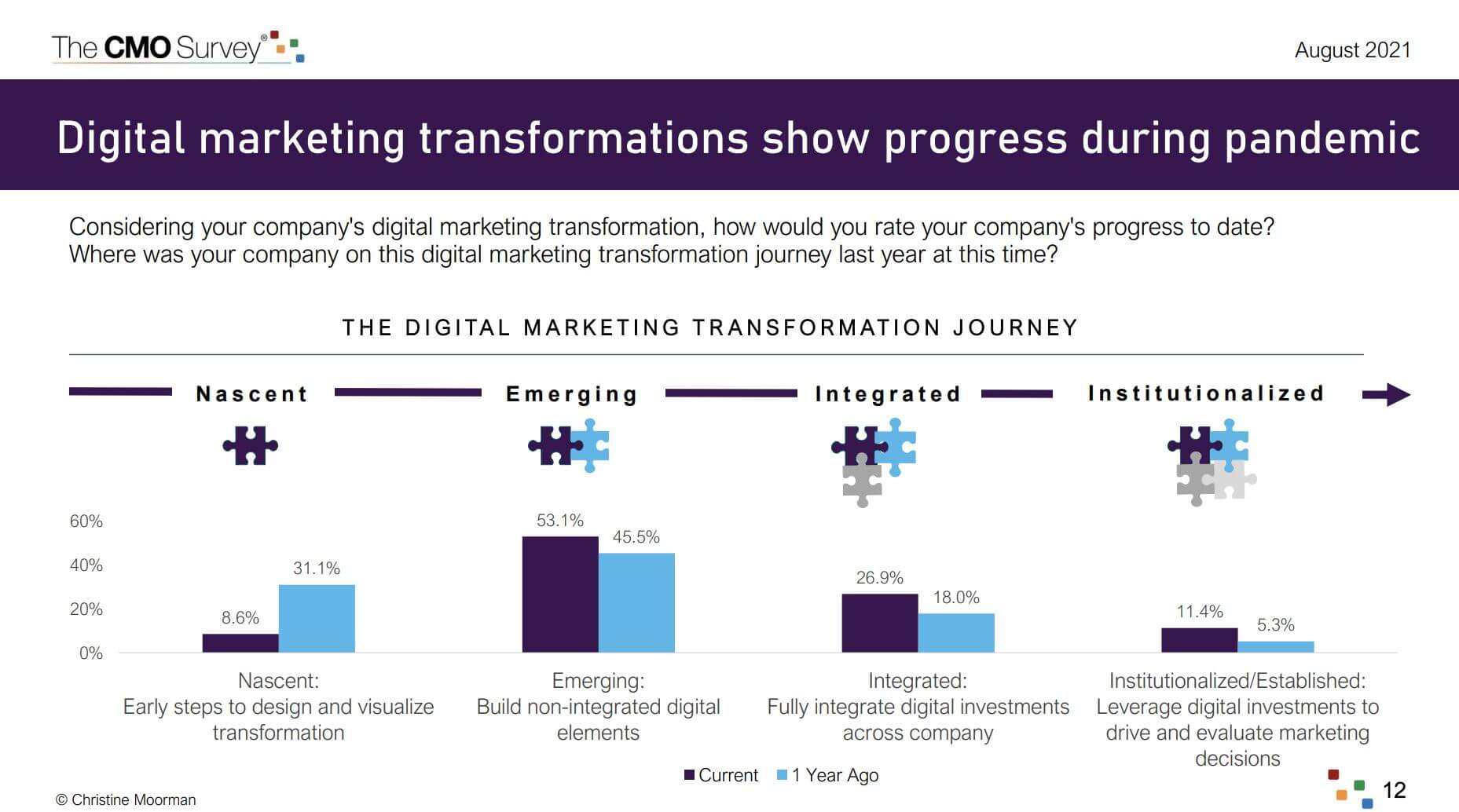
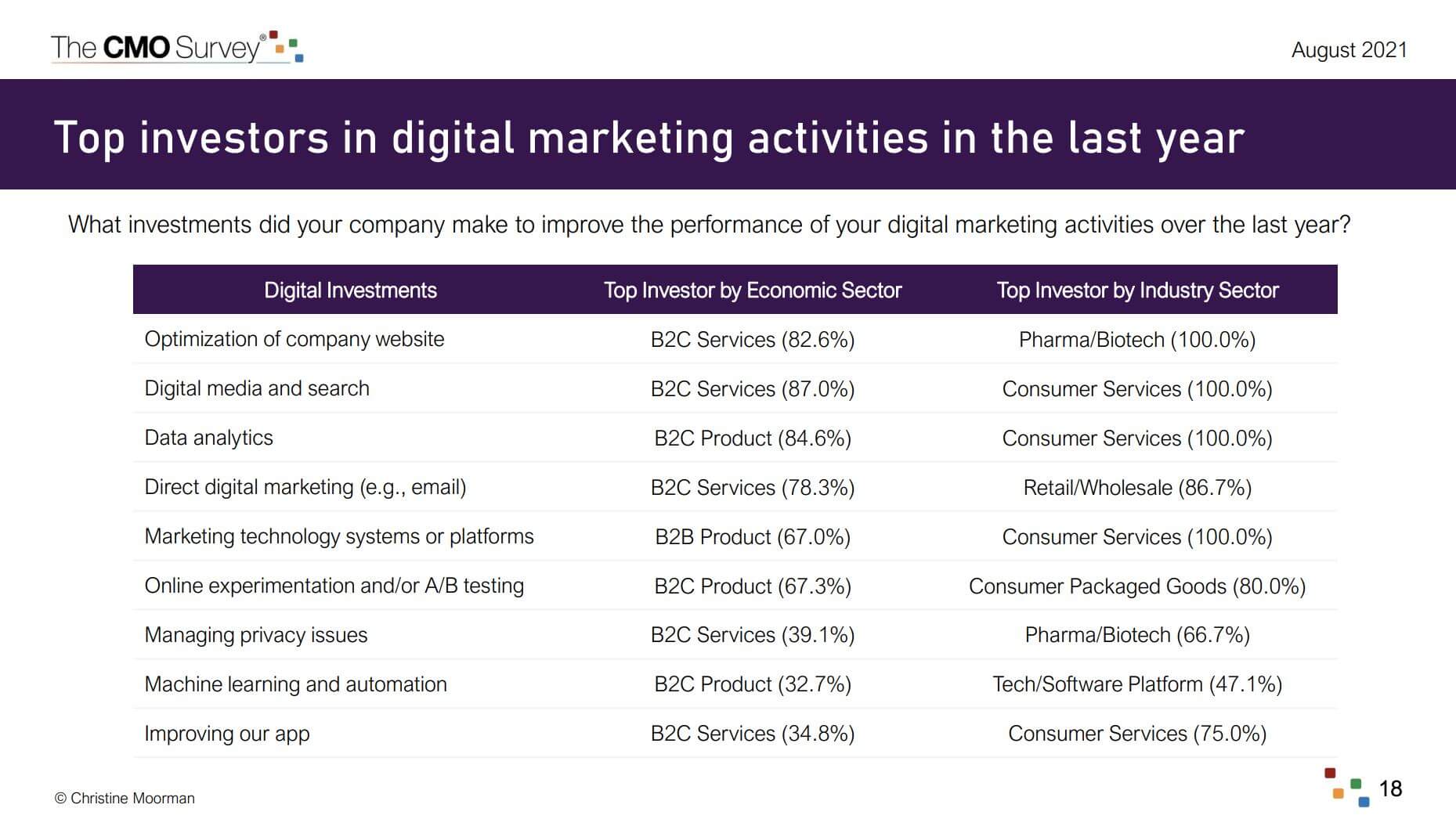
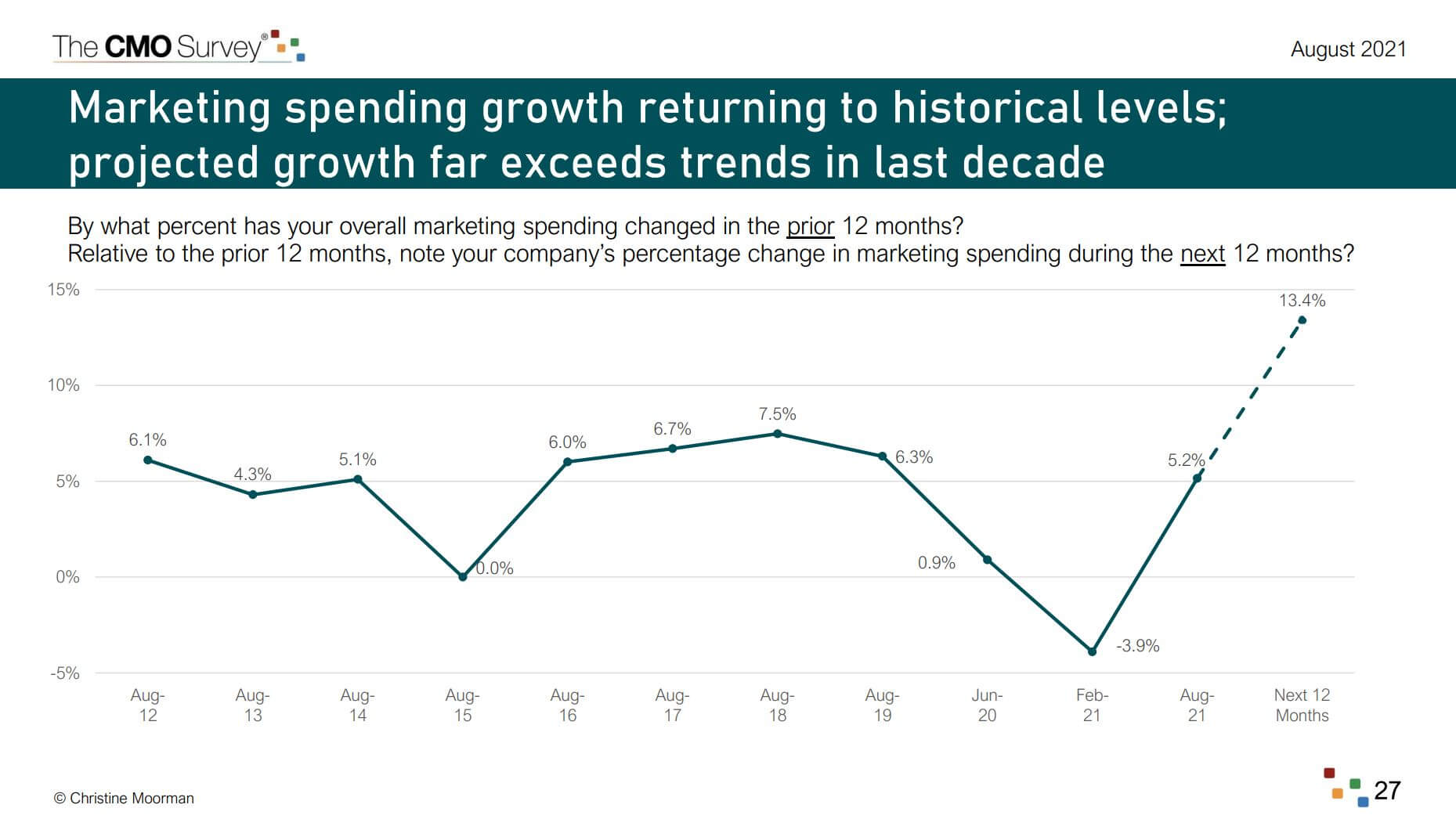
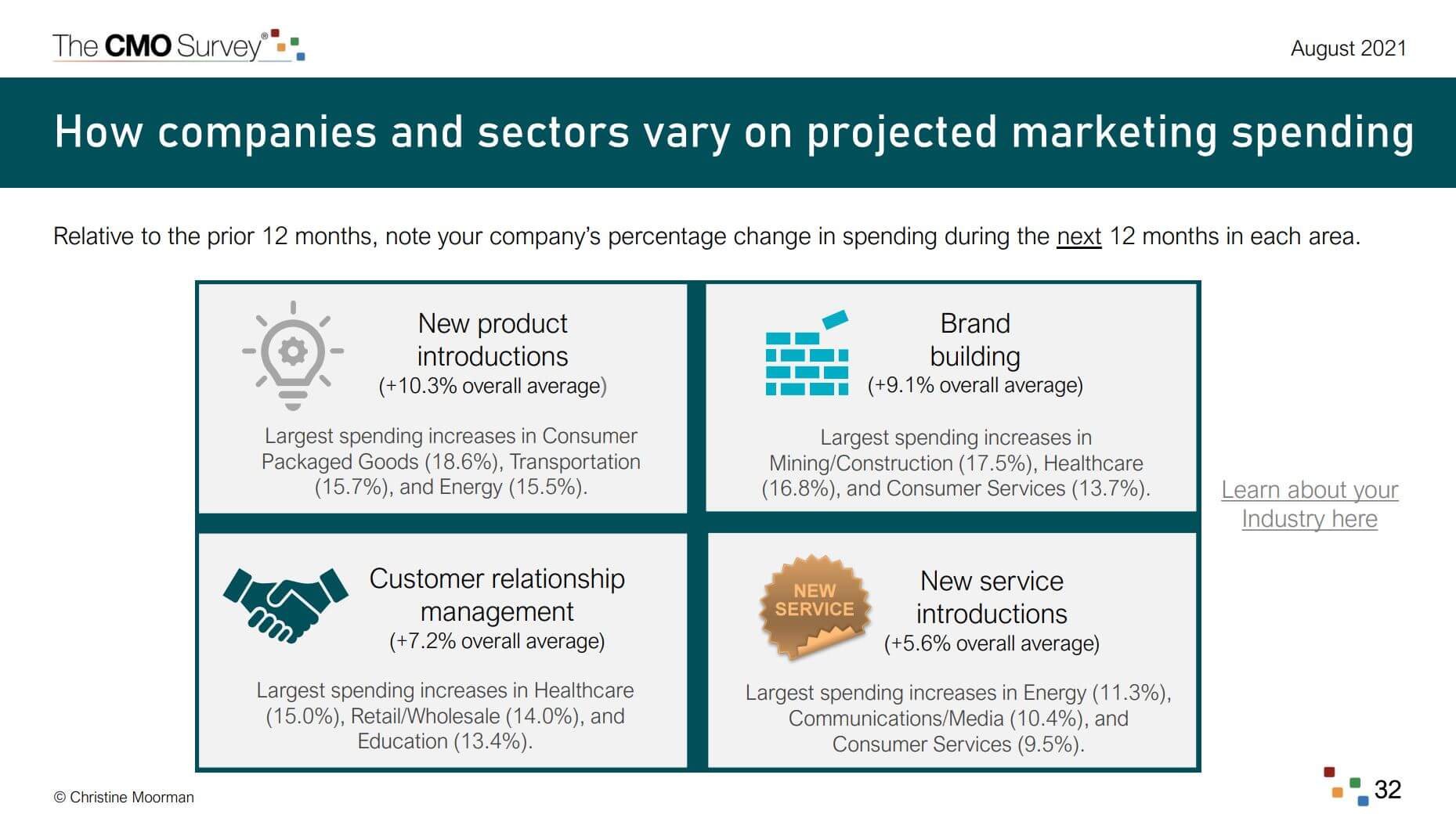
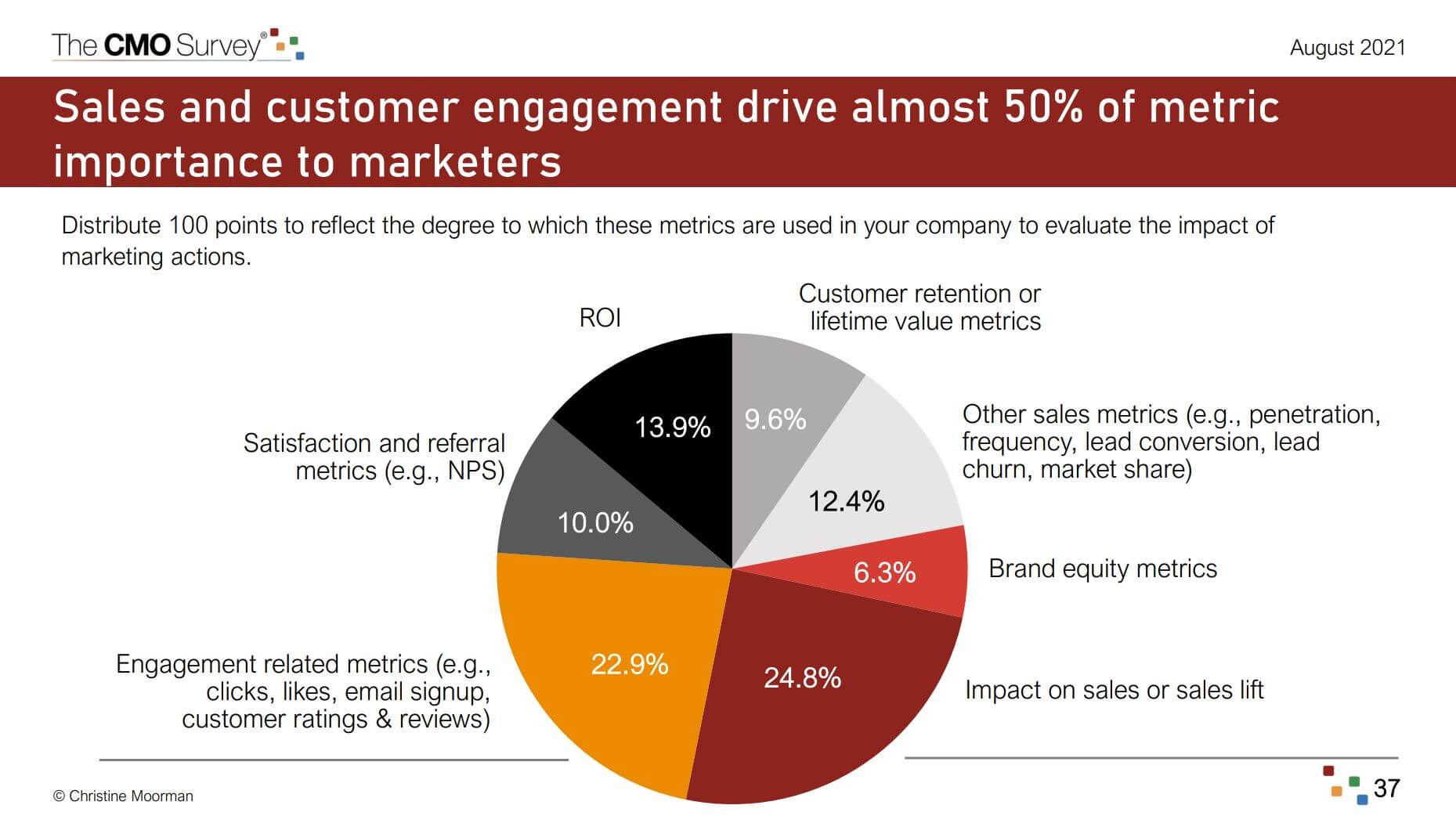
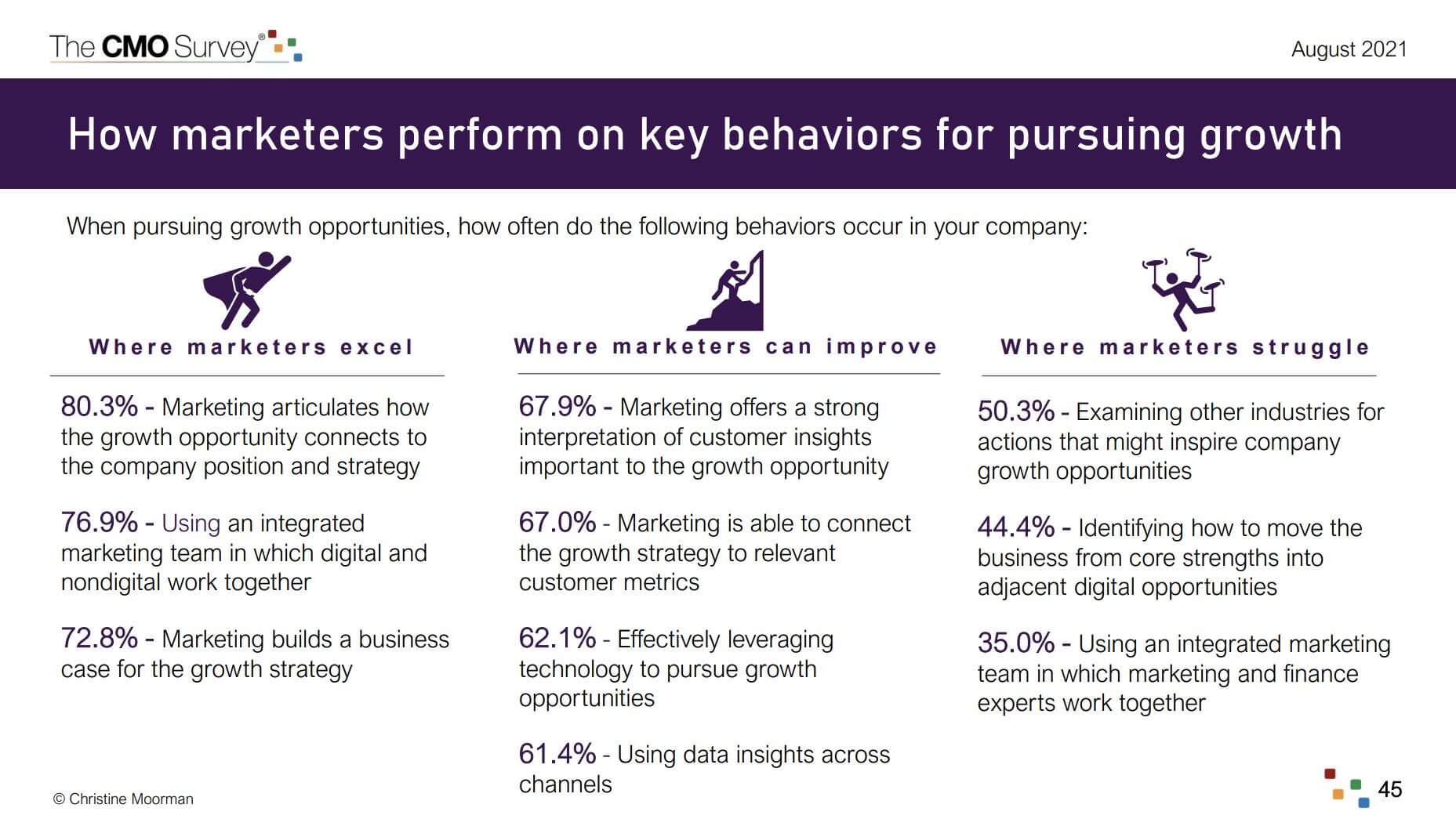
 How First-Party Data Will Affect Online Marketing
How First-Party Data Will Affect Online Marketing